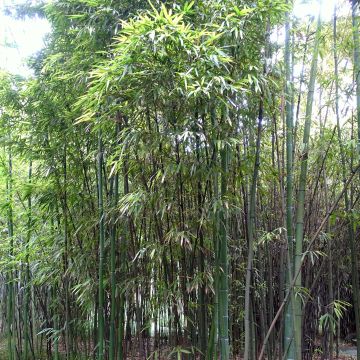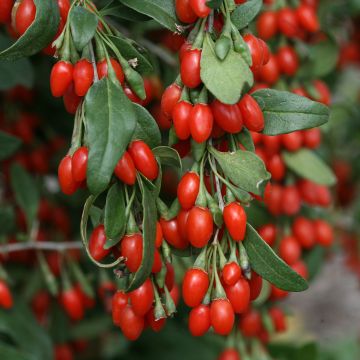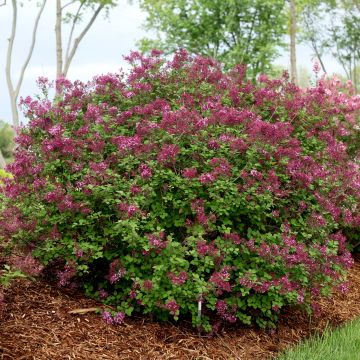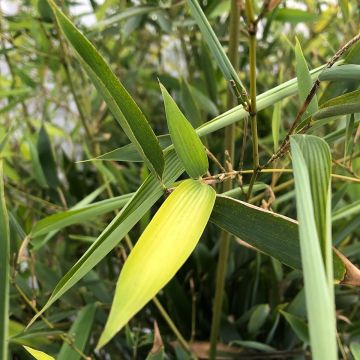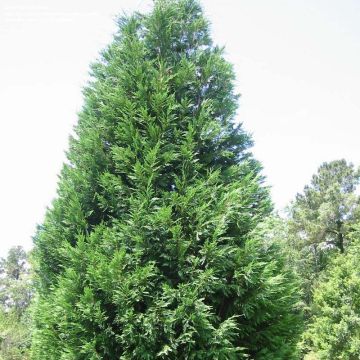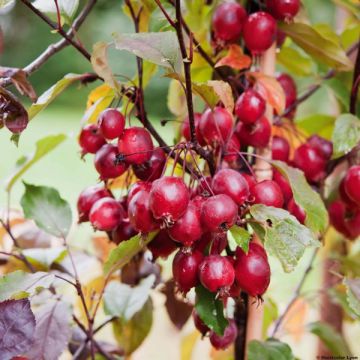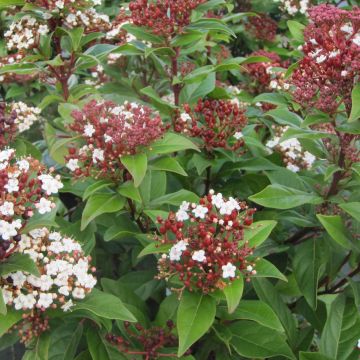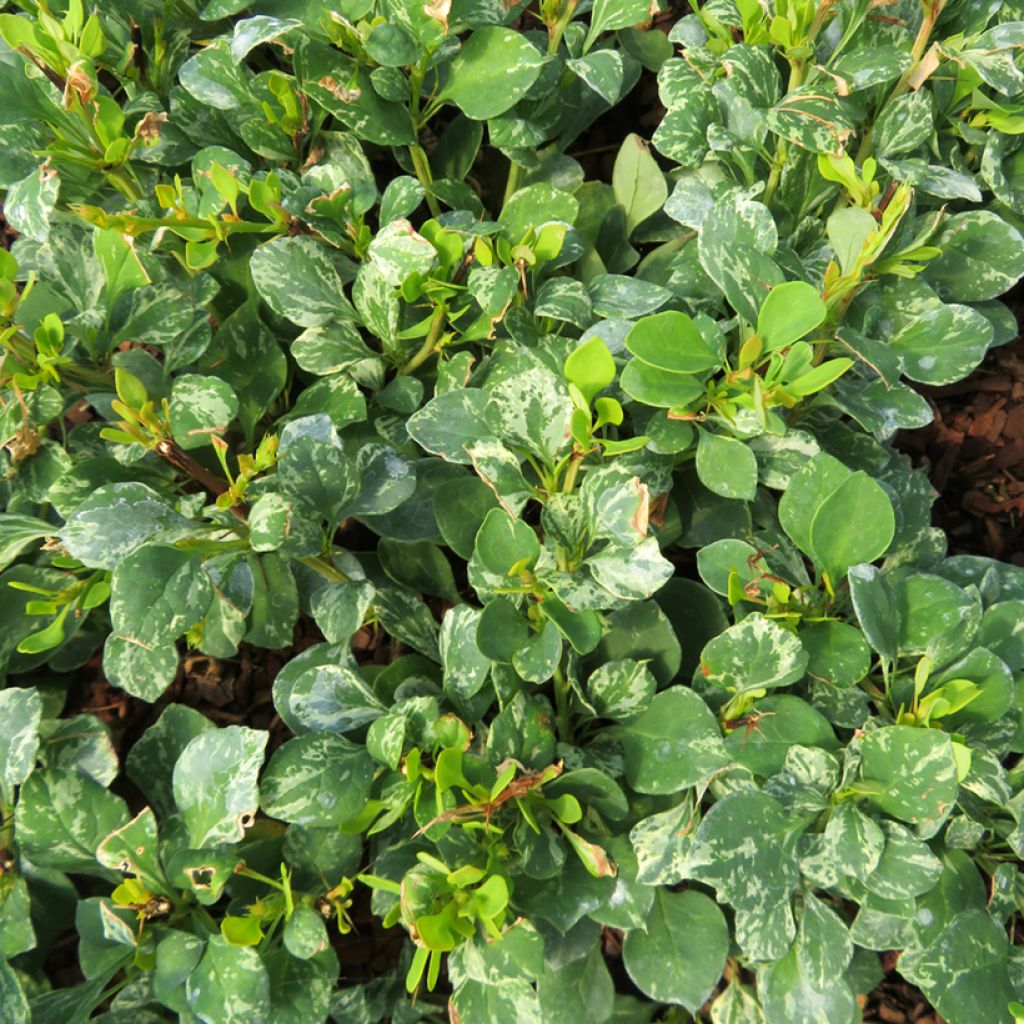

Berberis thunbergii Kelleriis
Berberis thunbergii Kelleriis
Berberis thunbergii Kelleriis
Japanese Barberry, Thunberg's Barberry
Special offer!
Receive a €20 voucher for any order over €90 (excluding delivery costs, credit notes, and plastic-free options)!
1- Add your favorite plants to your cart.
2- Once you have reached €90, confirm your order (you can even choose the delivery date!).
3- As soon as your order is shipped, you will receive an email containing your voucher code, valid for 3 months (90 days).
Your voucher is unique and can only be used once, for any order with a minimum value of €20, excluding delivery costs.
Can be combined with other current offers, non-divisible and non-refundable.
Home or relay delivery (depending on size and destination)
Schedule delivery date,
and select date in basket
This plant carries a 24 months recovery warranty
More information
We guarantee the quality of our plants for a full growing cycle, and will replace at our expense any plant that fails to recover under normal climatic and planting conditions.
Would this plant suit my garden?
Set up your Plantfit profile →
Description
The Berberis thunbergii 'Kelleriis' (or 'Kelleris') is a variety of barberry that is attractive for its colourful foliage. Its small leaves are variegated with cream white, sometimes with a touch of pink, and when autumn arrives, they take on warm shades of red and orange. Its discreet yellow spring flowering is followed by the formation of bright red berries in September. The compact dimensions of this bush and its ball-shaped habit make it easy to integrate into a diverse flower bed. It is easy to grow, adapts to most situations, and tolerates pruning well, especially if planted in a container.
Berberis is one of the 14 genera in the Berberidaceae family, also known for Mahonia, Nandina (sacred bamboo), and Epimedium's architectural and colourful flowers. There are 450 to 500 species of Berberis, a highly diversified genus of deciduous or evergreen shrubs. Recognisable by its yellow wood, Berberis gets its name from the Arabic word "berberys" which refers to its fruit. Depending on the species, it is ornamental for its foliage, often beautifully coloured, flowers, and sometimes even thorns! The Berberis thunbergii, also known as Thunberg's barberry or Japanese barberry, is a shrub native to Japan that was introduced to Europe as early as 1864. The typical species is characterised by a compact and regular habit, reaching a height of 1.50 m.
The 'Kelleriis' variety is appreciated for both its rather architectural habit and, above all, its foliage. This small shrub naturally forms a ball shape of approximately 1.20 m in diameter. The thin, well-branched branches are very dense. The plant has a spreading form, with upright branches in the centre that bend and spread out on the edges, eventually forming a very dense sphere with slightly irregular contours depending on the respective vigour of the branches. The leaves are grouped in pairs or threes at each node, and each of these layers also has a relatively short and thin but still prickly thorn. Relatively small, the leaves measure approximately 3 cm long and have a spatulate to obovate shape, with the widest part being in the third farthest from the petiole. The foliage is a beautiful bright green mottled irregularly with cream-white, giving it a very luminous appearance and allowing for stunning colour combinations with plants with dark foliage. It sometimes also has pink speckles that add to its ornamental interest. Maintaining this showy appearance throughout the growing season, it offers a fireworks display of pink, red, and orange in autumn before finally falling to the ground.
In spring, around April-May, this small shrub produces small yellow flowers that are relatively inconspicuous but still pleasant. Numerous clusters of one to six small bell-shaped flowers bloom on one-year-old stems. Very nectariferous, they develop into bright red fruits measuring 6 to 8 mm long in autumn, which persist on the branches for quite some time in winter.
This small barberry can be planted in a container to enhance a terrace. It adapts to all growing conditions, enjoying the full sun and tolerating partial shade. As it tolerates pruning very well, it can easily be maintained at the desired size. In the garden, it will be perfect when integrated into a diverse flower bed alongside purple or dark green foliage and flowering shrubs. The Cotinus coggygria 'Winecraft Black' will provide a contrast with its round-shaped and dark purple leaves. Its fluffy, large panicle flowers are also beautiful, and its red and orange autumn colours will complement those of your small barberry. For its staggered white flowering and attractive dark green foliage that will enhance the 'Kelleriis' foliage, opt for a Laurustinus (Viburnum tinus), whose evergreen vegetation remains ornamental in winter. And to create an attractive spot of colour in spring, nothing beats a broom such as Cytisus scoparius 'Goldfinch' with its bright yellow-orange and red flowers.
Report an error about the product description
Berberis thunbergii Kelleriis in pictures
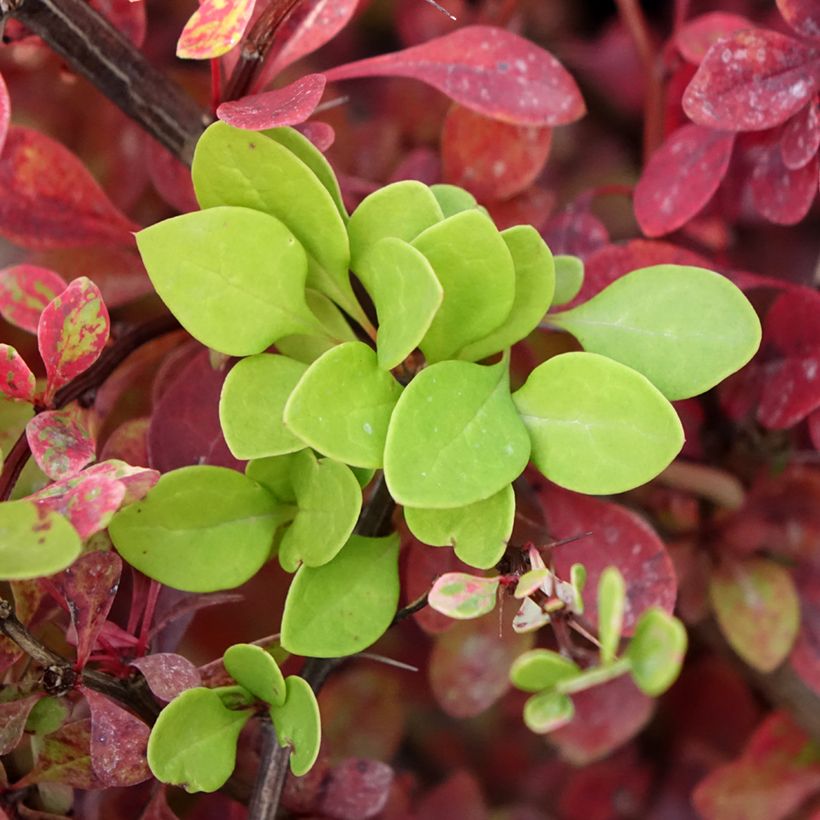

Plant habit
Flowering
Foliage
Botanical data
Berberis
thunbergii
Kelleriis
Berberidaceae
Japanese Barberry, Thunberg's Barberry
Cultivar or hybrid
Planting and care
The Berberis thunbergii 'Kelleriis', hardy beyond -25°C, should be planted in spring or autumn in any moist, well-drained soil, even chalky, poor or stony. Choose a sunny position, preferably, and reserve partial shade for the warmer climates. Add planting compost to the existing soil to improve its water retention. This Berberis adapts to most soils, from moderately acidic to chalky. Water generously and frequently during the first summers. However, there is no need to fertilise, requiring little maintenance. Make sure to keep the soil moist, especially in summer. After flowering, you can prune the plant with shears to strengthen its geometric shape or let it flourish freely for a more natural look. Be careful not to touch the branches with bare hands as they have thorns that are difficult to remove once embedded in the skin.
Planting period
Intended location
Care
This item has not been reviewed yet - be the first to leave a review about it.
Similar products
Haven't found what you were looking for?
Hardiness is the lowest winter temperature a plant can endure without suffering serious damage or even dying. However, hardiness is affected by location (a sheltered area, such as a patio), protection (winter cover) and soil type (hardiness is improved by well-drained soil).

Photo Sharing Terms & Conditions
In order to encourage gardeners to interact and share their experiences, Promesse de fleurs offers various media enabling content to be uploaded onto its Site - in particular via the ‘Photo sharing’ module.
The User agrees to refrain from:
- Posting any content that is illegal, prejudicial, insulting, racist, inciteful to hatred, revisionist, contrary to public decency, that infringes on privacy or on the privacy rights of third parties, in particular the publicity rights of persons and goods, intellectual property rights, or the right to privacy.
- Submitting content on behalf of a third party;
- Impersonate the identity of a third party and/or publish any personal information about a third party;
In general, the User undertakes to refrain from any unethical behaviour.
All Content (in particular text, comments, files, images, photos, videos, creative works, etc.), which may be subject to property or intellectual property rights, image or other private rights, shall remain the property of the User, subject to the limited rights granted by the terms of the licence granted by Promesse de fleurs as stated below. Users are at liberty to publish or not to publish such Content on the Site, notably via the ‘Photo Sharing’ facility, and accept that this Content shall be made public and freely accessible, notably on the Internet.
Users further acknowledge, undertake to have ,and guarantee that they hold all necessary rights and permissions to publish such material on the Site, in particular with regard to the legislation in force pertaining to any privacy, property, intellectual property, image, or contractual rights, or rights of any other nature. By publishing such Content on the Site, Users acknowledge accepting full liability as publishers of the Content within the meaning of the law, and grant Promesse de fleurs, free of charge, an inclusive, worldwide licence for the said Content for the entire duration of its publication, including all reproduction, representation, up/downloading, displaying, performing, transmission, and storage rights.
Users also grant permission for their name to be linked to the Content and accept that this link may not always be made available.
By engaging in posting material, Users consent to their Content becoming automatically accessible on the Internet, in particular on other sites and/or blogs and/or web pages of the Promesse de fleurs site, including in particular social pages and the Promesse de fleurs catalogue.
Users may secure the removal of entrusted content free of charge by issuing a simple request via our contact form.
The flowering period indicated on our website applies to countries and regions located in USDA zone 8 (France, the United Kingdom, Ireland, the Netherlands, etc.)
It will vary according to where you live:
- In zones 9 to 10 (Italy, Spain, Greece, etc.), flowering will occur about 2 to 4 weeks earlier.
- In zones 6 to 7 (Germany, Poland, Slovenia, and lower mountainous regions), flowering will be delayed by 2 to 3 weeks.
- In zone 5 (Central Europe, Scandinavia), blooming will be delayed by 3 to 5 weeks.
In temperate climates, pruning of spring-flowering shrubs (forsythia, spireas, etc.) should be done just after flowering.
Pruning of summer-flowering shrubs (Indian Lilac, Perovskia, etc.) can be done in winter or spring.
In cold regions as well as with frost-sensitive plants, avoid pruning too early when severe frosts may still occur.
The planting period indicated on our website applies to countries and regions located in USDA zone 8 (France, United Kingdom, Ireland, Netherlands).
It will vary according to where you live:
- In Mediterranean zones (Marseille, Madrid, Milan, etc.), autumn and winter are the best planting periods.
- In continental zones (Strasbourg, Munich, Vienna, etc.), delay planting by 2 to 3 weeks in spring and bring it forward by 2 to 4 weeks in autumn.
- In mountainous regions (the Alps, Pyrenees, Carpathians, etc.), it is best to plant in late spring (May-June) or late summer (August-September).
The harvesting period indicated on our website applies to countries and regions in USDA zone 8 (France, England, Ireland, the Netherlands).
In colder areas (Scandinavia, Poland, Austria...) fruit and vegetable harvests are likely to be delayed by 3-4 weeks.
In warmer areas (Italy, Spain, Greece, etc.), harvesting will probably take place earlier, depending on weather conditions.
The sowing periods indicated on our website apply to countries and regions within USDA Zone 8 (France, UK, Ireland, Netherlands).
In colder areas (Scandinavia, Poland, Austria...), delay any outdoor sowing by 3-4 weeks, or sow under glass.
In warmer climes (Italy, Spain, Greece, etc.), bring outdoor sowing forward by a few weeks.































